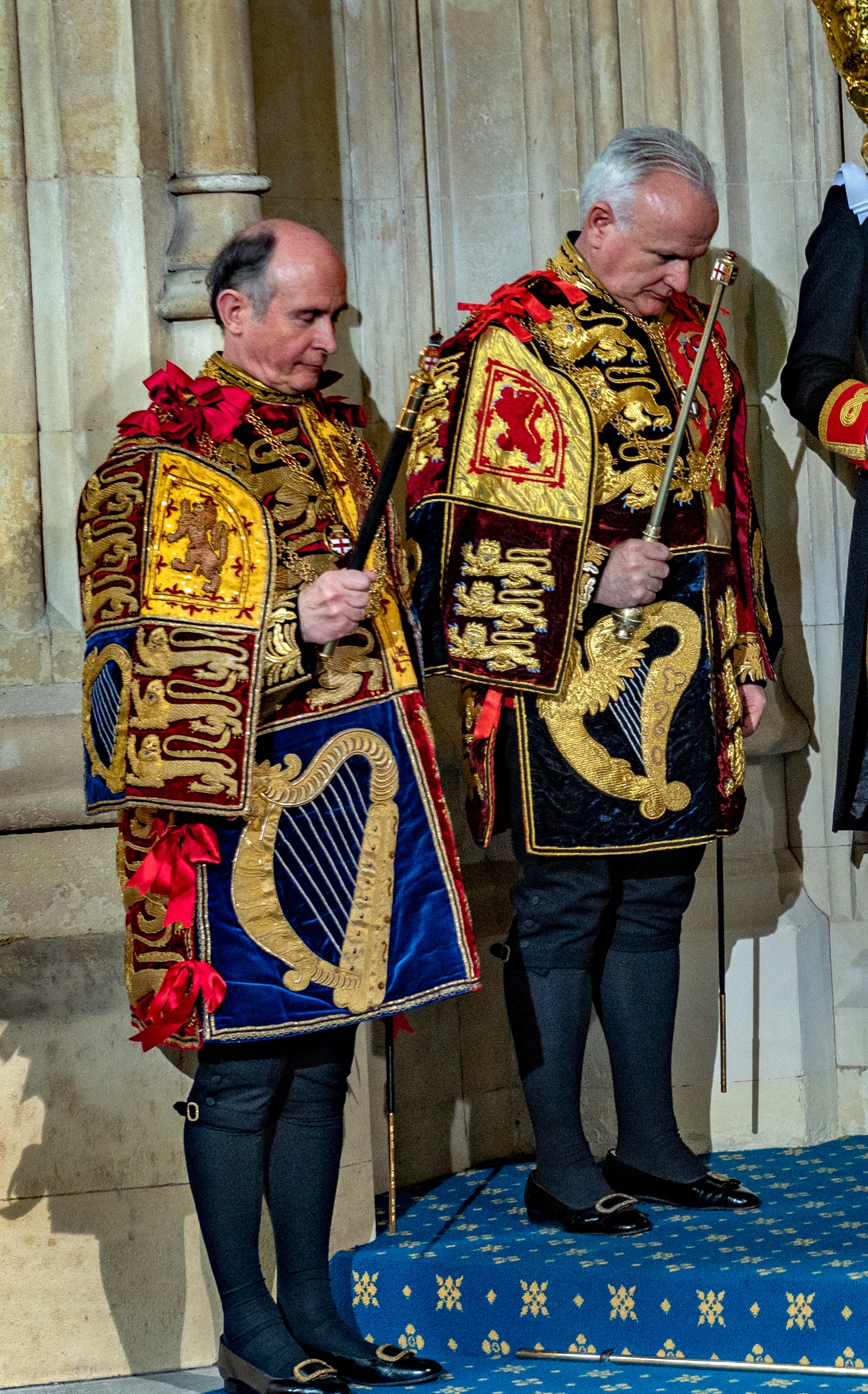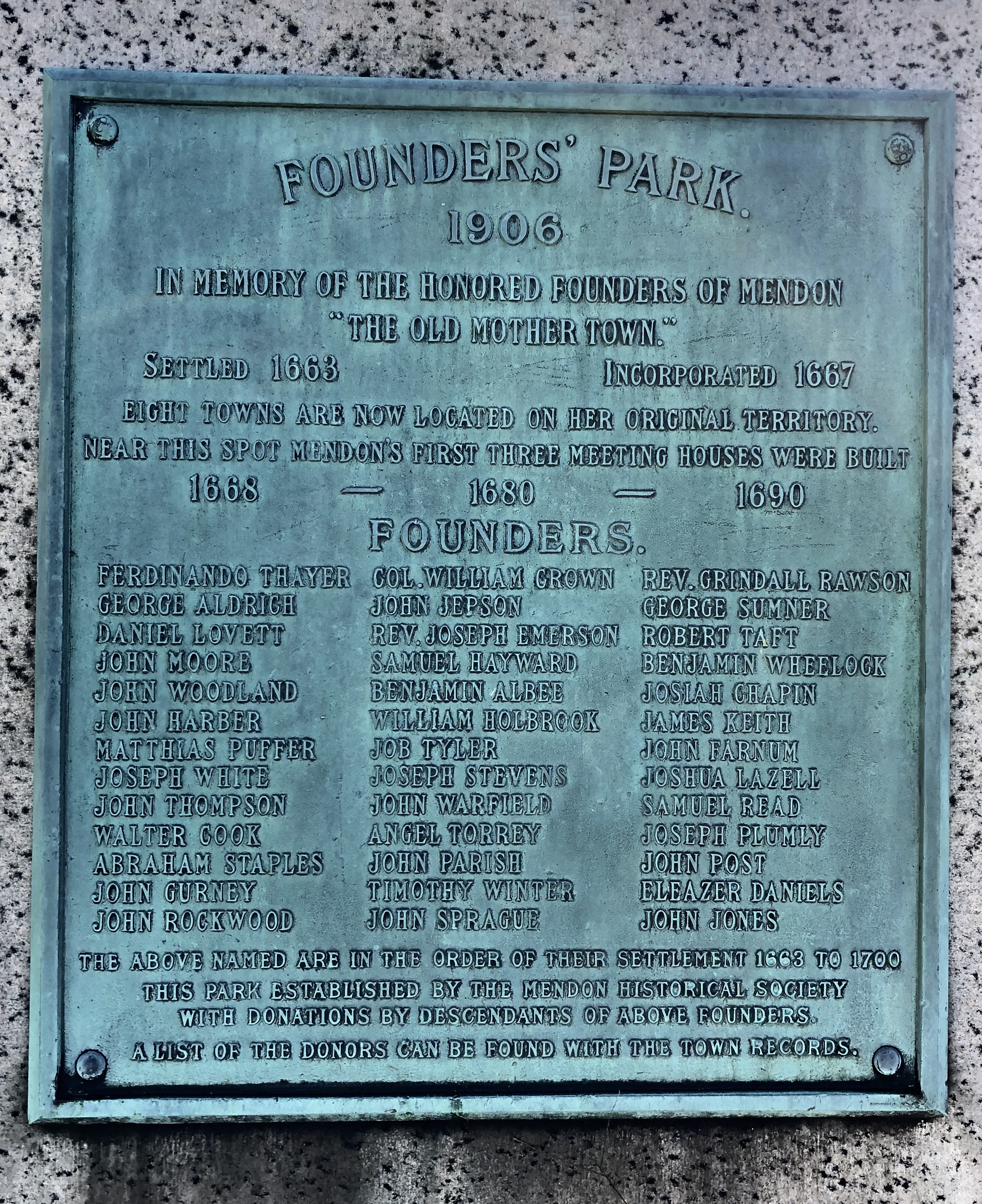|
William Crowne
William Crowne (1617–1682) had a varied career as an officer of arms, a member of parliament, a colonel during the English civil war, and a joint proprietor of the English colony of Nova Scotia. He was also the father of the playwright John Crowne. Early and personal life Different sources have Crowne's birthdate as 1608, 1617 or as late as 1620, but little is known of his early life and education. As a young man he accompanied his master the Earl of Arundel to Germany and wrote a book about his travels called "''A true relation of all the remarkable places and passages observed in the travels of the right honourable Thomas Lord Hovvard, Earle of Arundell and Surrey, Primer Earle, and Earle Marshall of England, ambassadour extraordinary to his sacred Majesty Ferdinando the second, emperour of Germanie, anno Domini 1636. By Wiliam Crowne Gentleman, London''". As Earl Marshal, Howard controlled appointments to the College of Arms; in 1638 he appointed Crowne Rouge Dragon Pursuivan ... [...More Info...] [...Related Items...] OR: [Wikipedia] [Google] [Baidu] |
Officer Of Arms
An officer of arms is a person appointed by a sovereign or Sovereign state, state with authority to perform one or more of the following functions: * to control and initiate coat of arms, armorial matters; * to arrange and participate in ceremonies of state; * to conserve and interpret heraldry, heraldic and genealogical records. By country The medieval practice of appointing heralds or pursuivants to the establishment of a Nobility, noble household is still common in European countries, particularly those in which there is no official heraldic control or Heraldic authority, authority. Such appointments are also still made in Scotland, where four Private officer of arms, private officers of arms exist. These appointments are all purely advisory. Canada Work completed by the Canadian Heraldic Authority is conducted by officers known as the herald of arms. The organization is led by the Herald Chancellor of Canada and the Chief Herald of Canada, the latter serving as the director ... [...More Info...] [...Related Items...] OR: [Wikipedia] [Google] [Baidu] |
Justice Of The Peace
A justice of the peace (JP) is a judicial officer of a lower or ''puisne'' court, elected or appointed by means of a commission ( letters patent) to keep the peace. In past centuries the term commissioner of the peace was often used with the same meaning. Depending on the jurisdiction, such justices dispense summary justice or merely deal with local administrative applications in common law jurisdictions. Justices of the peace are appointed or elected from the citizens of the jurisdiction in which they serve, and are (or were) usually not required to have any formal legal education in order to qualify for the office. Some jurisdictions have varying forms of training for JPs. History In 1195, Richard I ("the Lionheart") of England and his Minister Hubert Walter commissioned certain knights to preserve the peace in unruly areas. They were responsible to the King in ensuring that the law was upheld and preserving the " King's peace". Therefore, they were known as "keepers of th ... [...More Info...] [...Related Items...] OR: [Wikipedia] [Google] [Baidu] |
Treaty Of Breda (1667)
The Peace of Breda, or Treaty of Breda was signed in the Dutch city of Breda, on 31 July 1667. It consisted of three separate treaties between England and each of its opponents in the Second Anglo-Dutch War: the Dutch Republic, France, and Denmark–Norway. It also included a separate Anglo-Dutch commercial agreement. Negotiations had been in progress since late 1666 but were slow, as both sides tried to improve their positions. This changed after the French invasion of the Spanish Netherlands in late May, which the Dutch viewed as a more serious threat. War-weariness in England was increased by the June Raid on the Medway. Both factors led to a rapid agreement of terms. Prior to 1667, the Anglo-Dutch relationship had been dominated by commercial conflict, which the treaty did not end entirely. However, tensions decreased markedly and cleared the way for the 1668 Triple Alliance between the Dutch Republic, England and Sweden. With the brief anomaly of the 1672 to 1674 Third ... [...More Info...] [...Related Items...] OR: [Wikipedia] [Google] [Baidu] |
Town Clerk
A clerk is a senior official of many municipal governments in the English-speaking world. In some communities, including most in the United States, the position is elected, but in many others, the clerk is appointed to their post. In the UK, a Town or Parish clerk is appointed by the Town or Parish Council Members. In almost all cases, the actual title of the clerk reflects the type of municipality they work for, thus, instead of simply being known as the ''clerk'', the position is generally referred to as the town clerk, township clerk, city clerk, village clerk, borough clerk, board secretary, or county clerk. Other titles also exist, such as recorder. The office has existed for centuries, though in some places it is now being merged with other positions. The duties of a municipal clerk vary even more than their titles. In the United Kingdom, a clerk is generally responsible for a Local Council (Town or Parish). Particularly in the United States, it is difficult to fully descri ... [...More Info...] [...Related Items...] OR: [Wikipedia] [Google] [Baidu] |
Mendon, Massachusetts
Mendon is a town in Worcester County, Massachusetts, United States. The population was 6,228 at the 2020 census. Mendon is part of the Blackstone River Valley National Heritage Corridor, an early center of the industrial revolution in the United States. Mendon celebrated its 350th Anniversary on May 15, 2017. History Early history Native Americans inhabited the Mendon area for thousands of years prior to European colonization of the Americas. At the time of contact, Nipmuc people inhabited the area that would become Mendon, and Nipmuc Pond is named for them. Nipmuc Regional High School was named after this lake. ''Nipmuc'' means "small pond place" or "people of the fresh waters". The Nipmuc name does not refer to a specific village or tribe, but to natives that inhabited almost all of central Massachusetts. Over 500 Nipmuc live today in Massachusetts, and there are two nearby reservations at Grafton and Webster. The Nipmuc had a written language, tools, a graphite mine at ... [...More Info...] [...Related Items...] OR: [Wikipedia] [Google] [Baidu] |
Roxbury, Boston
Roxbury () is a Neighborhoods in Boston, neighborhood within the City of Boston, Massachusetts. Roxbury is a Municipal annexation in the United States, dissolved municipality and one of 23 official neighborhoods of Boston used by the city for neighborhood services coordination. The city states that Roxbury serves as the "heart of Black culture in Boston."Roxbury " City of Boston. Retrieved on May 2, 2009. Roxbury was one of the first towns founded in the Massachusetts Bay Colony in 1630, and became a city in 1846 before being annexed to Boston on January 5, 1868.Roxbury History . Part of Roxbury had become the town of West Roxbury on May 24, 1851, and additional land in Roxbur ... [...More Info...] [...Related Items...] OR: [Wikipedia] [Google] [Baidu] |
Acadia
Acadia (french: link=no, Acadie) was a colony of New France in northeastern North America which included parts of what are now the Maritime provinces, the Gaspé Peninsula and Maine to the Kennebec River. During much of the 17th and early 18th centuries, Norridgewock on the Kennebec River and Castine at the end of the Penobscot River were the southernmost settlements of Acadia. The French government specified land bordering the Atlantic coast, roughly between the 40th and 46th parallels. It was eventually divided into British colonies. The population of Acadia included the various indigenous First Nations that comprised the Wabanaki Confederacy, the Acadian people and other French settlers. The first capital of Acadia was established in 1605 as Port-Royal. An English force from Virginia attacked and burned down the town in 1613, but it was later rebuilt nearby, where it remained the longest-serving capital of French Acadia until the British siege of Port Royal in 17 ... [...More Info...] [...Related Items...] OR: [Wikipedia] [Google] [Baidu] |
Charles II Of England
Charles II (29 May 1630 – 6 February 1685) was King of Scotland from 1649 until 1651, and King of England, Scotland and Ireland from the 1660 Restoration of the monarchy until his death in 1685. Charles II was the eldest surviving child of Charles I of England, Scotland and Ireland and Henrietta Maria of France. After Charles I's execution at Whitehall on 30 January 1649, at the climax of the English Civil War, the Parliament of Scotland proclaimed Charles II king on 5 February 1649. But England entered the period known as the English Interregnum or the English Commonwealth, and the country was a de facto republic led by Oliver Cromwell. Cromwell defeated Charles II at the Battle of Worcester on 3 September 1651, and Charles fled to mainland Europe. Cromwell became virtual dictator of England, Scotland and Ireland. Charles spent the next nine years in exile in France, the Dutch Republic and the Spanish Netherlands. The political crisis that followed Cromwell's death in 1 ... [...More Info...] [...Related Items...] OR: [Wikipedia] [Google] [Baidu] |
English Restoration
The Restoration of the Stuart monarchy in the kingdoms of England, Scotland and Ireland took place in 1660 when King Charles II returned from exile in continental Europe. The preceding period of the Protectorate and the civil wars came to be known as the Interregnum (1649–1660). The term ''Restoration'' is also used to describe the period of several years after, in which a new political settlement was established. It is very often used to cover the whole reign of King Charles II (1660–1685) and often the brief reign of his younger brother King James II (1685–1688). In certain contexts it may be used to cover the whole period of the later Stuart monarchs as far as the death of Queen Anne and the accession of the Hanoverian King George I in 1714. For example, Restoration comedy typically encompasses works written as late as 1710. The Protectorate After Richard Cromwell, Lord Protector from 1658 to 1659, ceded power to the Rump Parliament, Charles Fleetwood and J ... [...More Info...] [...Related Items...] OR: [Wikipedia] [Google] [Baidu] |
Archibald MacMechan
Archibald McKellar MacMechan (June 21, 1862 – 7 August 1933) was a Canadian academic at Dalhousie University and writer. His works deal mainly with Nova Scotia and its history. ''The Halifax Disaster (Explosion)'' was an official history of the Halifax Explosion. Born in Berlin, Ontario ( now known as Kitchener), he is credited with reviving Herman Melville's reputation in North America. He had written to Melville in 1889, right at the end of his life. Hershel Parker, ''Herman Melville: A Biography'' vol. 2, p. 898. He was awarded the Lorne Pierce Medal in 1932. He was a long-term member of the Royal Nova Scotia Historical Society The Royal Nova Scotia Historical Society is a historical society in Halifax, Nova Scotia that was founded in 1878 and is the second oldest in Canada (The Literary and Historical Society of Quebec is the first.) The Society is a voluntary organizatio .... Works * ''Concerning The Oldest English Literature'', (1889) * ''The Relation Of Hans Sachs To ... [...More Info...] [...Related Items...] OR: [Wikipedia] [Google] [Baidu] |







